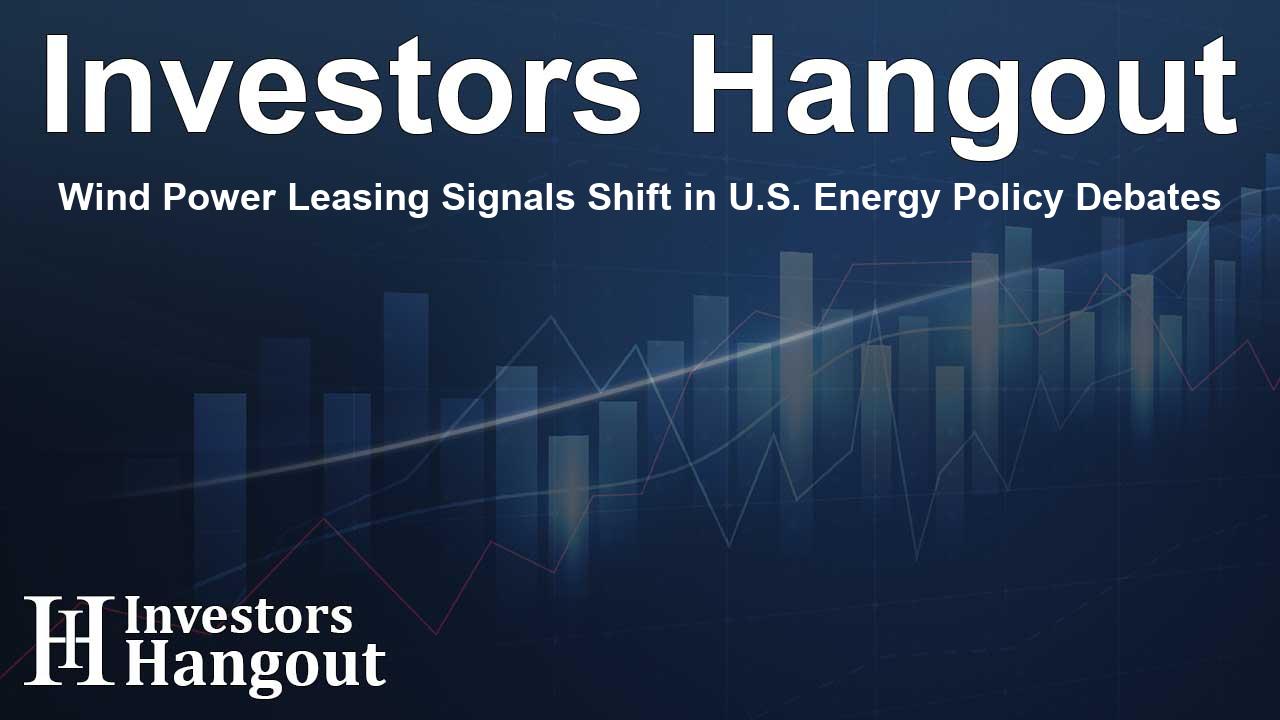Wind Power Leasing Signals Shift in U.S. Energy Policy Debates

Shift in U.S. Energy Policy Regarding Wind Power
Recent statements from a key political figure have highlighted a dramatic shift in the approach to wind power leasing in the United States. This development is particularly significant as it could signal a broader change in energy policy that prioritizes different energy sources over renewable options.
Concerns Over Wind Power Development
The concluding remarks made at a recent event have set the tone for potential changes regarding wind energy projects. The sentiment expressed was clear: there is an intention to curtail new leasing agreements for expansive wind farms. Critics have raised alarms, indicating that such a move might be a contradiction to the need for a diverse energy portfolio.
Importance of Diverse Energy Sources
This shift in strategy may have significant implications for the future of energy in the nation. Advocates for wind energy argue that utilizing all available power sources, including offshore wind, is essential for achieving energy independence. They emphasize that a national energy emergency necessitates leveraging every viable resource to meet demand.
Contrasting Views on Renewable Energy
This situation creates a stark contrast with the previous administration's approach, which was more favorable towards fostering wind energy as part of a comprehensive strategy to address climate change. The former administration recognized wind power as a critical tool in decarbonizing the electricity sector, which could bring energy benefits and stimulate economic growth.
Implications for Future Energy Policy
The evolving stance on wind energy raises questions about the future of renewable energy policies in the U.S. As discussions continue regarding energy independence and environmental responsibilities, industry leaders are hopeful for a more balanced dialogue that incorporates the benefits of various sustainable energy sources.
Challenges for Renewable Energy Advocates
Advocates for renewable energy are faced with the task of reaffirming the importance of wind and other green energy sources in the current political climate. The contrasting positions emphasize the need for ongoing advocacy and the importance of demonstrating the economic and environmental benefits of investing in wind power.
Frequently Asked Questions
What changes are being proposed for wind power leasing in the U.S.?
There are indications that new leasing agreements for large wind farms may be curtailed as part of a shift in energy policy.
How does this shift affect renewable energy advocates?
This could create challenges for renewable energy advocates, as they work to promote the benefits of wind energy amidst changing political stances.
Why is wind power considered important?
Wind power is recognized as a critical component for diversifying energy resources and combating climate change.
What are the implications for future energy policies?
The changes could lead to a more restrictive environment for wind power development, affecting broader energy strategies.
How can advocates respond to these changes?
Advocates may need to emphasize the economic and environmental benefits of wind energy to foster a more favorable policy environment.
About The Author
Contact Henry Turner privately here. Or send an email with ATTN: Henry Turner as the subject to contact@investorshangout.com.
About Investors Hangout
Investors Hangout is a leading online stock forum for financial discussion and learning, offering a wide range of free tools and resources. It draws in traders of all levels, who exchange market knowledge, investigate trading tactics, and keep an eye on industry developments in real time. Featuring financial articles, stock message boards, quotes, charts, company profiles, and live news updates. Through cooperative learning and a wealth of informational resources, it helps users from novices creating their first portfolios to experts honing their techniques. Join Investors Hangout today: https://investorshangout.com/
The content of this article is based on factual, publicly available information and does not represent legal, financial, or investment advice. Investors Hangout does not offer financial advice, and the author is not a licensed financial advisor. Consult a qualified advisor before making any financial or investment decisions based on this article. This article should not be considered advice to purchase, sell, or hold any securities or other investments. If any of the material provided here is inaccurate, please contact us for corrections.
